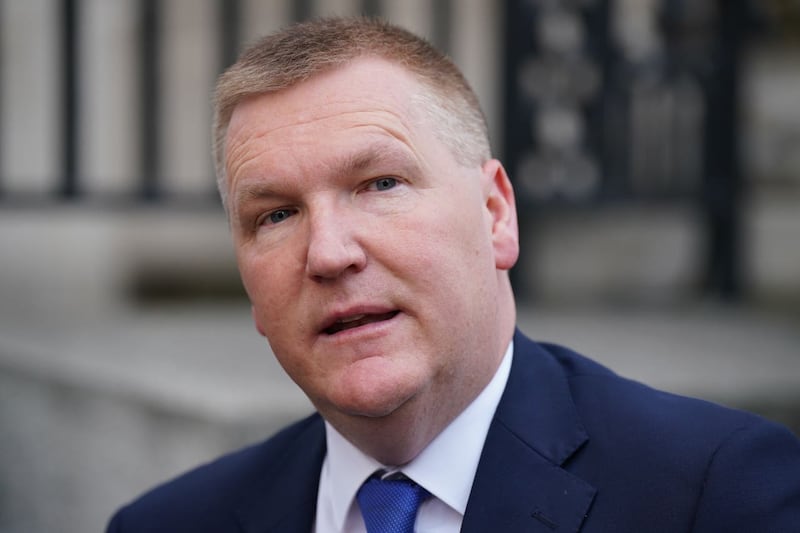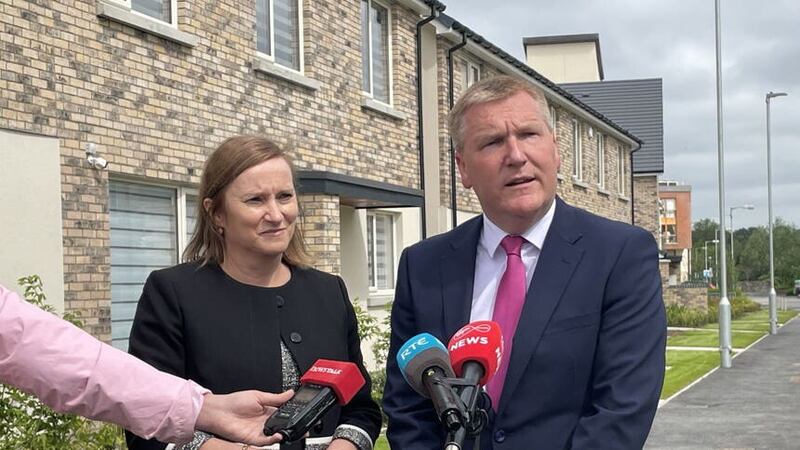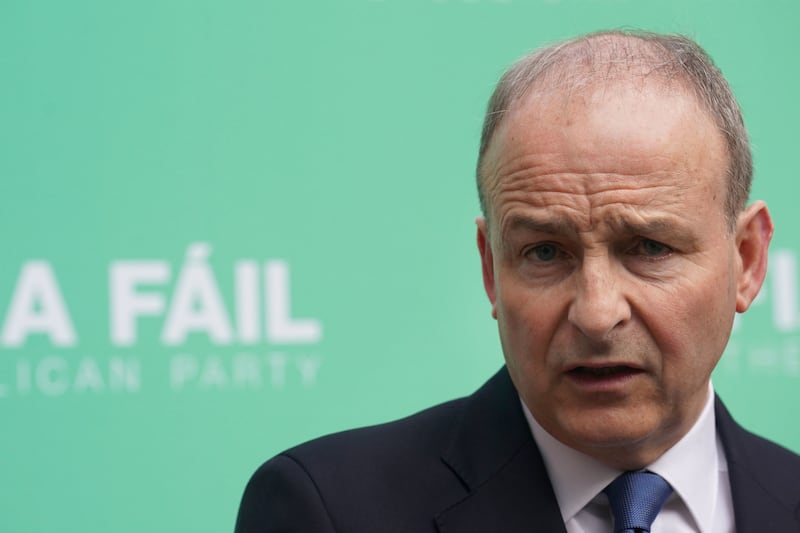Minister for Finance Michael McGrath has said he will be as firm as he needs to be during budget negotiations.
Budget 2024 will be the Fianna Fail TD’s first as finance minister, having served as public expenditure minister for the past three fiscal packages, alongside Fine Gael’s Paschal Donohoe.
This week, three Fine Gael junior ministers – including a junior finance minister – called for a full-time worker on a wage of 52,000 euro to get 1,000 euro back in tax relief in the next budget.
Ministers of state Jennifer Carroll MacNeill, Martin Heydon and Peter Burke argued that this cohort “deserve a break”.
When asked whether he would be “bullied” over the budget by his coalition colleagues, Mr McGrath replied “certainly not”.
“Anybody who knows me well enough will know that I can be as tough as anybody else when it comes to negotiations,” he said on Wednesday.
“I will always be conciliatory and polite, but I can be as firm as I need to be and will be.
“I will be designing the tax package and it will be done following close consultation with all of our colleagues across government, and that work will be finalised in the coming months.”
He added: “I think it’s inevitable in a three-party coalition government that there will be times when parties want to assert, as they see it, their identity, and will seek to carve out space on a particular issue.
“I’m long enough around to recognise that and understand the reality of it, there will always be a certain amount of jockeying for position.”
He also said that he has “a lot of ideas” in relation to tax measures that could be taken, but has to consider them over the next four months alongside other measures.

The government is being questioned over what exactly it plans to do with the record eight billion euro surplus it collected last year – with a further 10 billion euro forecast for this year, both largely due to windfall corporation tax.
Ministers have warned it will not be used to make permanent spending commitments or permanent tax cuts, as it is volatile and could be pulled unexpectedly.
Mr McGrath has indicated previously that it could be used to reduce the national debt as Ireland is currently paying four billion euro a year in repayments. He said this was especially important where government bonds are maturing and have to be refinanced at more expensive rates.
He said on Wednesday that windfall corporation surpluses offered an “incredible opportunity to make our public finances safer and more sustainable into the future”.
Mr McGrath was speaking at a new housing development in Ashtown, Dublin, funded by Home Building Finance Ireland (HBFI), made up of 92 units that are a mix of three- and four-bedroom homes aimed at first-time buyers.
HBFI was launched in January 2019 as part of the Government’s response to Ireland’s housing supply shortage.
It was given an initial loan fund of up to 730 million euro to provide funding to help the delivery of up to 7,500 new homes over five years.
As of April 2023, HBFI has been given funding of 1.353 billion euro to support the potential delivery of up to 6,161 homes across 22 counties.








